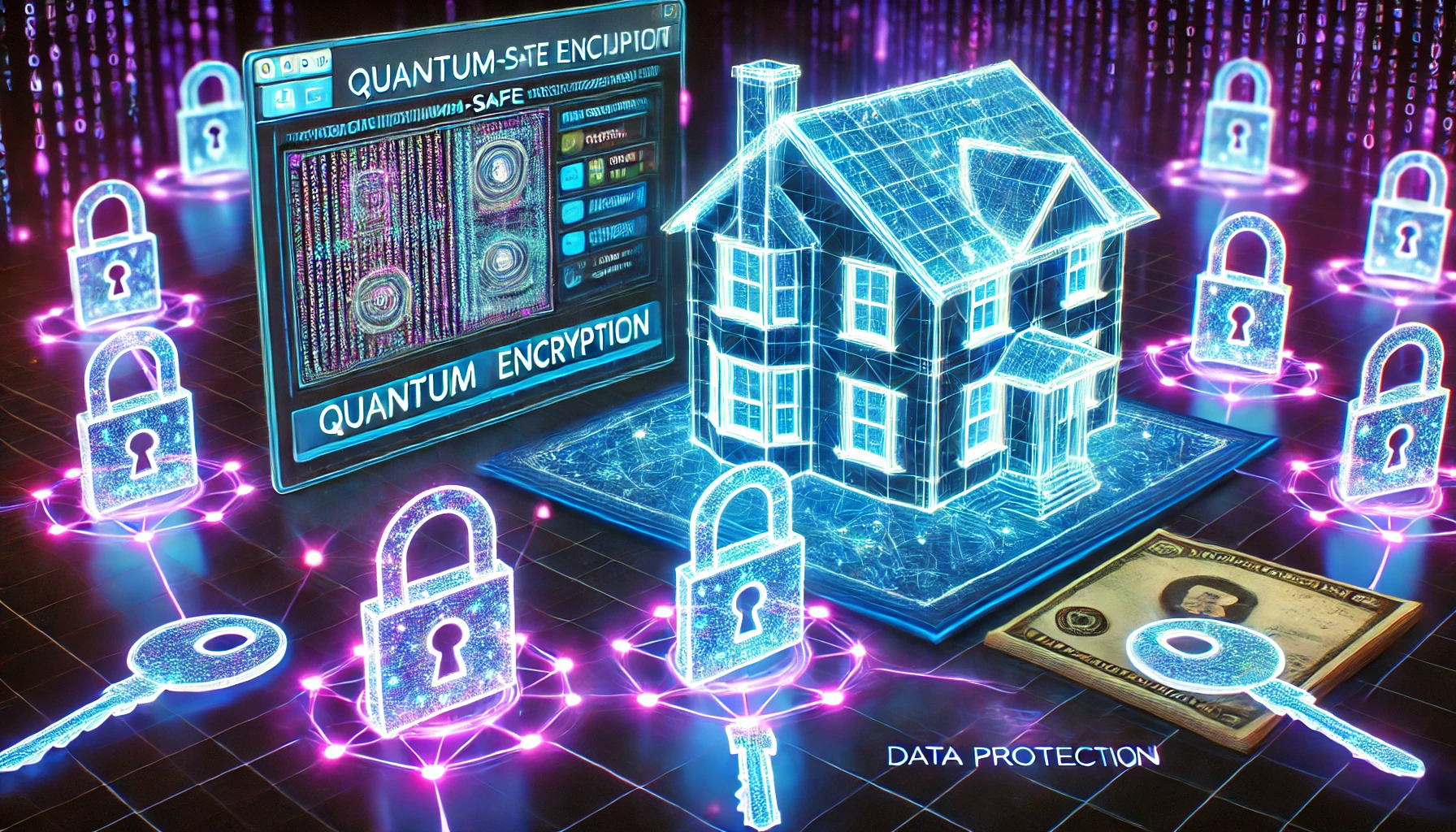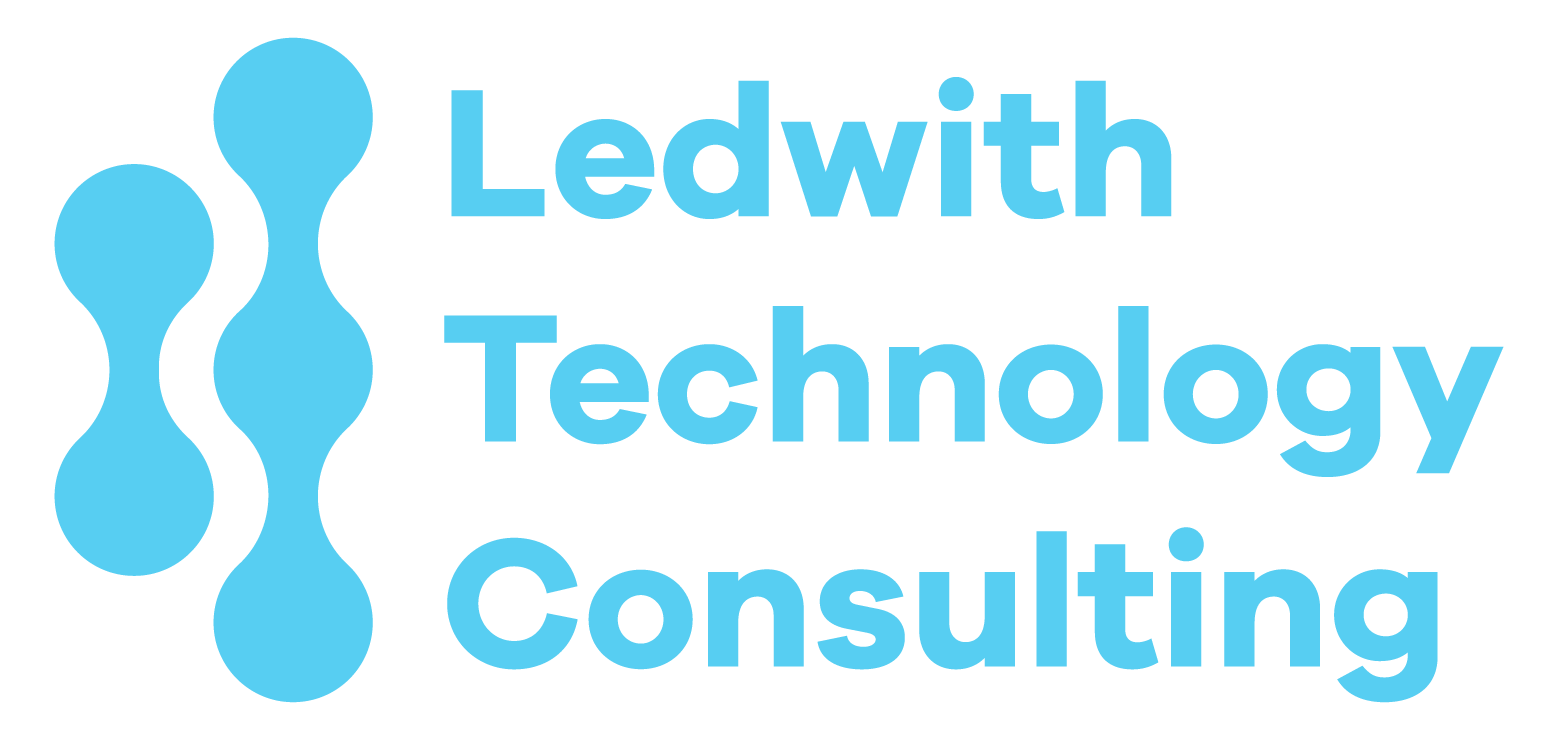By Stephen Ledwith April 24, 2025
The Quantum Threat Is Closer Than You Think
Quantum computing is no longer a distant dream—it’s happening now. When quantum systems reach sufficient power and stability, they will be capable of breaking encryption standards that have protected digital transactions for decades. This includes the encryption methods used in real estate transactions, where financial and personal data are particularly sensitive.
🚀 Key Insight:
“Quantum computing threatens to render traditional encryption obsolete, putting vast amounts of financial and personal data at risk.”
In an industry built on trust and high-value exchanges, ensuring data security is paramount. The question isn’t if real estate firms should prepare for quantum-safe encryption—it’s when.
Why Quantum Computers Are a Threat to Encryption
Most encryption today relies on mathematical problems that are practically unsolvable by classical computers within a reasonable timeframe. However, Shor’s Algorithm, a quantum algorithm developed by mathematician Peter Shor, can efficiently factor large prime numbers—an operation at the heart of RSA encryption.
📌 What does this mean?
- RSA-2048, which protects financial transactions, could be broken in hours by a sufficiently advanced quantum computer.
- Elliptic Curve Cryptography (ECC), widely used in blockchain-based real estate transactions, is also vulnerable.
- AES encryption, commonly used for secure storage, will require larger key sizes to remain safe.
According to Dr. Michele Mosca, co-founder of the Institute for Quantum Computing, “Any system that depends on RSA or ECC should assume it will be broken within the next decade” (Mosca, 2023).

The Real Estate Industry’s Unique Encryption Challenges
Real estate transactions involve a complex web of financial institutions, legal agreements, and third-party services. The sensitive nature of these transactions makes them prime targets for cybercriminals. Key vulnerabilities include:
🔹 Title and escrow transactions – Sensitive ownership and financial data are exchanged across multiple parties.
🔹 Mortgage processing – Loan approvals involve encrypted credit data that could be exposed.
🔹 Smart contracts on blockchain – Many real estate transactions now use smart contracts, which rely on cryptographic security.
🔹 Personal identity information (PII) – A data breach could expose names, addresses, social security numbers, and banking details.
The Shift to Post-Quantum Cryptography
In response to these threats, cybersecurity experts are pushing for Post-Quantum Cryptography (PQC)—encryption techniques resistant to quantum attacks.
🔑 What Is Post-Quantum Cryptography?
PQC refers to cryptographic algorithms that remain secure against attacks by both classical and quantum computers. The National Institute of Standards and Technology (NIST) has been leading a multi-year project to standardize PQC algorithms, with several finalists expected to be adopted industry-wide.
Top contenders for post-quantum cryptographic algorithms include:
- CRYSTALS-Kyber (for key exchange)
- CRYSTALS-Dilithium (for digital signatures)
- Falcon (for digital signatures in blockchain applications)
🔹 “Real estate transactions will need to transition to quantum-resistant encryption well before large-scale quantum computers become operational,” says Dr. Lily Chen, cryptography researcher at NIST.
How Real Estate Companies Can Prepare for a Quantum-Secure Future
To protect financial transactions from quantum attacks, real estate firms should adopt a quantum-ready security strategy that includes:
1️⃣ Assess Current Cryptographic Risks
- Conduct an audit of existing encryption standards in databases, contracts, and communications.
- Identify systems using RSA, ECC, or SHA-2, which will be vulnerable to quantum decryption.
2️⃣ Implement Hybrid Cryptography
- Combine traditional encryption with post-quantum algorithms to create a layered security approach.
- Use hybrid TLS (Transport Layer Security) solutions that integrate quantum-resistant encryption.
3️⃣ Upgrade Smart Contracts and Blockchain Security
- Transition blockchain-based transactions to quantum-safe cryptographic primitives.
- Ensure multi-signature authentication methods are quantum-resistant.
4️⃣ Engage with Quantum Security Providers
- Partner with security firms that specialize in quantum cryptographic upgrades.
- Follow industry updates from NIST, Google, IBM, and Microsoft, all of which are investing in quantum-secure encryption.
5️⃣ Plan for Continuous Upgrades
- Implement “crypto-agility”—the ability to quickly switch cryptographic protocols when better quantum-safe options become available.
Conclusion: The Time to Act Is Now
Quantum computing is evolving rapidly, and real estate firms cannot afford to wait until encryption is broken. Proactive companies are already integrating quantum-safe encryption methods to future-proof their transactions.
The message is clear: Real estate firms that ignore quantum security today risk financial and legal fallout tomorrow.
🔹 “The cost of upgrading to quantum-resistant encryption is far less than the cost of a single major security breach.” — Dr. Vadim Lyubashevsky, cryptographer at IBM Research.
Next Steps for Real Estate Leaders
- ✅ Audit current encryption practices
- ✅ Implement hybrid quantum-resistant cryptography
- ✅ Collaborate with industry leaders on PQC adoption
- ✅ Stay informed about NIST’s evolving encryption standards
By taking these steps now, real estate companies can stay ahead of the quantum curve and continue to provide secure, trusted transactions for years to come.

